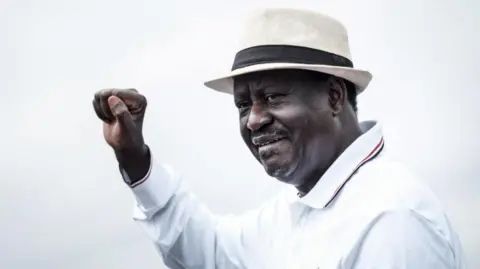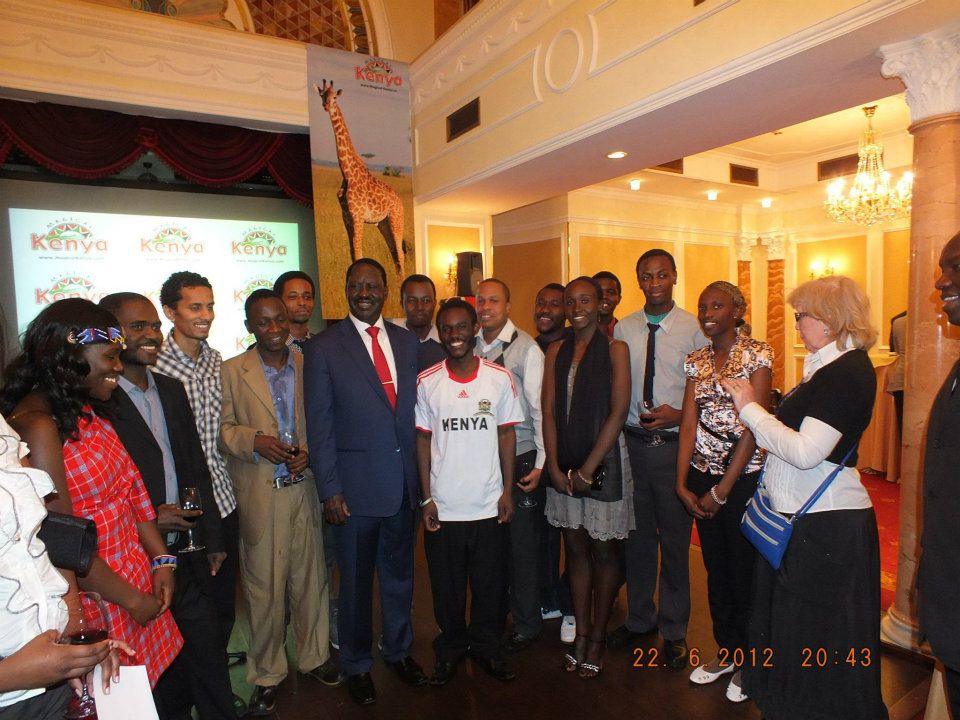I met Raila Odinga in 2012 when I was a student in Russia. At the time, he was Kenya’s Prime Minister, and he had traveled to Russia to attend the St. Petersburg Economic Forum at the invitation of President Vladimir Putin. For us Kenyan students studying abroad, the opportunity to meet Raila was thrilling.
A dinner had been organized for Kenyan students, business leaders, and friends of Kenya in Russia. When Raila finally walked into the hall, it was with the full trappings of power: aides, ministers, security, media, and an impressive delegation. As he entered, we students stood in two rows along the entrance to welcome him.
He walked in about seven meters, then paused when he realized that the people lining the hallway were Kenyan students. He turned back, walked to the first person at the door, and began shaking hands with each one of us, one by one. That simple act left a deep impression on all of us.
During the dinner, several people spoke, including his brother, Oburu Odinga, who addressed the gathering in fluent Russian. I hope my Russian will be that good 30 years from now. When Raila took the podium, he spoke first about Kenya’s growing potential, its infrastructure, its people, and its vision for the future. Then he switched to Swahili to speak directly to us, the Kenyan students.
He urged us to come back home after our studies, to contribute to building Kenya, to bring back the skills and knowledge we were acquiring abroad. He painted a picture of a Kenya full of promise, a Kenya worth returning to.
Through Raila’s visit and the relationships that emerged, or were ongoing, between some Kenyan and Russian entities, a few of us got opportunities to intern at a leading Russian energy firm that was bidding for a smart-grid project in Kenya. That internship later opened doors to my first job when I returned home. In a way, Raila’s global connections indirectly shaped the trajectory of my career.
Raila’s influence was far-reaching and undeniably powerful. He carried with him a presence that could fill a room, as we witnessed in that dinner. He could charm an audience with ease. But he was also a man constantly thinking ahead, restless with ideas and ambition.
Raila Odinga was not a simple man, nor can his life be reduced to a single narrative. He was at once a reformist, a political schemer, a family man, and a national symbol of resilience. Like all great leaders, his story cannot be told only through victories or failures. It must also be told through the tensions, contradictions, and sacrifices that defined his journey.
Politics in Kenya, and indeed in much of Africa, is not for the faint-hearted. To rise to Raila’s level, one must possess extraordinary courage and perhaps a touch of ruthlessness. There were moments when he stood on the right side of history, and perhaps others when the choices were less clear.
When I heard of his death, I felt a deep sadness, not just for his family, who have always seemed so close and loyal to one another, but also for the Luo community, which has lost a towering figure whose influence cannot easily be replaced. As I messaged my Luo friend to express my condolences, he told me, “You may not understand what he meant to us.” I believed him. Some losses are too deeply woven into the fabric of a people to be fully grasped by outsiders.
Yet, as Kenya mourns, I hope we also reflect honestly. Raila’s story, like that of many historical figures, is not one-dimensional. He was both the visionary and the agitator, the reformer and the rival. He could inspire hope and provoke division, sometimes in the same breath. His charisma was undeniable, but so was his political cunning. To understand Raila is to accept that greatness often walks hand in hand with imperfection.
I hope that in the coming years, those who were closest to him — family, friends, allies, even adversaries — will share more of the man behind the movement. Kenya deserves full stories, not just headlines. We need to know the quiet moments, the strategic decisions, the missteps, and the motivations that made him who he was.
Beyond politics and power, I find myself thinking of eternity. I truly hope that Raila knew Jesus. I hope he had made his peace with the Lord. As a Christian, I believe that is the most important decision any man can make. It wouldn’t make sense to be so loved and revered in this world yet face eternal separation from God. Eternity with Christ is the true prize.
At the end of life, and you see this with everyone eulogizing Raila, we speak of what has eternal value – the good someone did, the love they shared, and the faith they carried. May that truth challenge us all, especially leaders who often idolize their own significance and forget that character and faith outlive fame.


Rt. Hon. Raila A. Odinga was many things to many people. I personally feel that not having a Raila Presidency is a missed opportunity as he would have made Kenya actually take the Great Leap Forward in her economic status. H.E. The Right Honourable Raila A. Odinga would have been the best person to foster industrialization in Kenya but we always found invalid excuses of not getting him into Statehouse. I have actually stood side by side with Rt. Hon. Raila Odinga as he validated my candidacy as one of the Azimio La Umoja – One Kenya candidates in Lurambi Constituency in 2022.
Great Article Job.